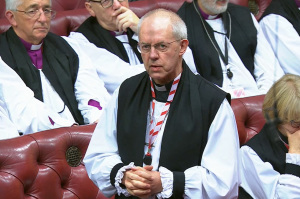Anglicans in Canada Agree to Close Churches
Canadian Anglicans have agreed to move ahead with the disestablishment of several churches, according to an announcement Monday.
The closing of more than a dozen parishes is part of a major overhaul in the Diocese of British Columbia as it faces declining membership and a post-Christian society.
The 93rd Synod, the highest legislative body, agreed in principle with the intention and urgency of the Diocesan Transformation Team Report, which was released in January.
In an effort to revive the diocese, the report has called for the closing of some parishes to shift financial resources to mission-critical initiatives and for the reformation of the mission of the church – one that will take the diocese beyond just survival.
"I have become utterly convinced that our way forward as a Diocese is through the acceptance of the transformational change offered in this Report," Diocesan Bishop James Cowan said Saturday.
While acknowledging the sorrow and anger among parishes over the closure of buildings where people have worshipped for years, Cowan said there is also an anger that has been expressed during the past six years in reports and is motivating the diocese toward transformation.
"This anger, which comes from all levels of our Diocesan life, tells us that there is waste of spiritual, human, and material resources and energies among us; waste which hinders the movement of the Spirit of God, our work as Church, and the mission of God in this world," he explained. "This anger, too, needs to be heard and discerned as the issues before us are debated."
In a vote on Monday, the Synod agreed to encourage "conversion toward a new emphasis on Mission and life-changing growth in the name of the Gospel of Jesus Christ, and on developing new ways of being and doing church, while honoring the best of Anglican Tradition."
In accepting the recommendations, the Synod agreed to use proceeds from the sale and leasing of disestablished buildings and lands to finance new initiatives. Some parishes that are to be closed have been asked to join a new hub church while others will continue for a few more years and be reassessed. In the meantime, the continuing parishes have been encouraged to undertake initiatives to reach the unchurched.
A 2006 independent study found that membership in the Canadian region of the worldwide Anglican Communion fell between 1961 and 2001 by 53 percent to under a million members. Moreover, the rate of decline was increasing. While church membership decreased by 13 percent between 1981 and 1991, the next decade saw a loss of 20 percent.
Anglicans in Canada continue to see a decline in average Sunday attendance, a decline in revenue to support the mission of the church and an increase in the average age of parishioners.
The January report has called for a two-tiered process of transformation: a radical change in the structure and organization of the diocese's energies and resources for the mission of Christ and a cultural transformation within the church.
"While we see no alternative to making recommendations to reduce the number of our parishes, the goal of this Report is transformational and thus much farther reaching than a survival strategy alone, or seeking to maintain the status quo," the report states. "As has been stated many times in this process, the status quo is not an option. What we are recommending to Synod 2010 is nothing less than an approach for transforming and regenerating our Diocese in a post-Christian society. We have taken the word 're-form' literally."
A second sitting of the 93rd Synod will be held sometime before May 2 to deal with outstanding issues.





























